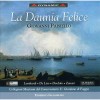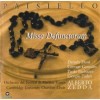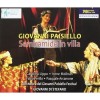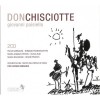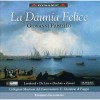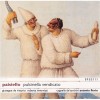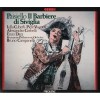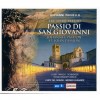Composers
Giovanni Paisiello (or Paesiello) (9 May 1740 – 5 June 1816) was an Neapolitan composer of the Classical era.
Paisiello was born at Taranto and educated by the Jesuits there. He became known for his beautiful singing voice and in 1754 was sent to the Conservatorio di S. Onofrio at Naples, where he studied under Francesco Durante, and eventually became assistant master. For the theatre of the Conservatorio, which he left in 1763, he wrote some intermezzi, one of which attracted so much notice that he was invited to write two operas, La Pupilla and Il Mondo al Rovescio, for Bologna, and a third, Il Marchese di Tidipano, for Rome.
His reputation now firmly established, he settled for some years at Naples, where, despite the popularity of Niccolò Piccinni, Domenico Cimarosa and Pietro Guglielmi, of whose triumphs he was bitterly jealous, he produced a series of highly successful operas, one of which, L'ldolo cinese, made a deep impression upon the Neapolitan public.
In 1772 Paisiello began to write church music, and composed a requiem for Gennara di Borbone, of the reigning dynasty. In the same year he married Cecilia Pallini, and the marriage was a happy one. In 1776 Paisiello was invited by the empress Catherine II of Russia to St Petersburg, where he remained for eight years, producing, among other charming works, his masterpiece, Il barbiere di Siviglia, which soon attained a European reputation. The fate of this opera marks an epoch in the history of Italian art; for with it the gentle suavity cultivated by the masters of the 18th century died out to make room for the dazzling brilliance of a later period.
When, in 1816, Gioachino Rossini set a revised version of the libretto to music, under the title of "Almaviva ossia la inutil precauzione" the fans of Paisiello stormed the stage. Rossini's opera, now known as Il barbiere di Siviglia, is now acknowledged as Rossini's greatest work, while Paisiello's opera is only infrequently produced—a strange instance of poetical vengeance, since Paisiello himself had many years previously endeavoured to eclipse the fame of Giovanni Battista Pergolesi by resetting the libretto of his famous intermezzo, La serva padrona.
Paisiello left Russia in 1784, and, after producing Il Re Teodoro at Vienna, entered the service of Ferdinand IV of Naples, where he composed many of his best operas, including Nina and La Molinara. After many vicissitudes, resulting from political and dynastic changes, he was invited to Paris (1802) by Napoleon, whose favor he had won five years previously by composing a march for the funeral of General Hoche. Napoleon treated him munificently, while cruelly neglecting two more famous composers, Luigi Cherubini and Etienne Méhul, to whom the new favorite transferred the hatred he had formerly borne to Cimarosa, Guglielmi and Piccinni.
Paisiello conducted the music of the court in the Tuileries with a stipend of 10,000 francs and 4800 for lodging, but he entirely failed to conciliate the Parisian public, who received his opera Proserpine so coldly that, in 1803, he requested and with some difficulty obtained permission to return to Italy, upon the plea of his wife's ill health. On his arrival at Naples Paisiello was reinstated in his former appointments by Joseph Bonaparte and Joachim Murat, but he had taxed his genius beyond its strength, and was unable to meet the demands now made upon it for new ideas. His prospects, too, were precarious. The power of the Bonaparte family was tottering to its fall; and Paisiello's fortunes fell with it. The death of his wife in 1815 tried him severely. His health failed rapidly, and constitutional jealousy of the popularity of others was a source of worry and vexation.
Paisiello is known to have composed 94 operas, which are known for their gracefully beautiful melodies. Perhaps the best-known tune he ever wrote is Nel cor più non mi sento from La Molinara, immortalized when Beethoven composed variations based on it. Paisiello also wrote a great deal of church music, including eight masses; as well as fifty-one instrumental compositions and many stand-alone songs. Manuscript scores of many of his operas were presented to the library of the British Museum by Domenico Dragonetti.
The library of the Gerolamini at Naples possesses an interesting manuscript compilation recording Paisiello's opinions on contemporary composers, and exhibiting him as a somewhat severe critic, especially of the work of Pergolesi.
The Concise Grove Dictionary of Music[1][dead link] notes that "Paisiello was one of the most successful and influential opera composers of his time. Most of his over 80 operas are comic and use a simple, direct and spirited style, latterly with sharper characterization, more colorful scoring and warmer melodies (features that influenced Mozart). His serious operas have less than the conventional amount of virtuoso vocal writing; those for Russia are the closest to Gluck's 'reform' approach."
Recently Added
Biography
Giovanni Paisiello (or Paesiello) (9 May 1740 – 5 June 1816) was an Neapolitan composer of the Classical era.
Paisiello was born at Taranto and educated by the Jesuits there. He became known for his beautiful singing voice and in 1754 was sent to the Conservatorio di S. Onofrio at Naples, where he studied under Francesco Durante, and eventually became assistant master. For the theatre of the Conservatorio, which he left in 1763, he wrote some intermezzi, one of which attracted so much notice that he was invited to write two operas, La Pupilla and Il Mondo al Rovescio, for Bologna, and a third, Il Marchese di Tidipano, for Rome.
His reputation now firmly established, he settled for some years at Naples, where, despite the popularity of Niccolò Piccinni, Domenico Cimarosa and Pietro Guglielmi, of whose triumphs he was bitterly jealous, he produced a series of highly successful operas, one of which, L'ldolo cinese, made a deep impression upon the Neapolitan public.
In 1772 Paisiello began to write church music, and composed a requiem for Gennara di Borbone, of the reigning dynasty. In the same year he married Cecilia Pallini, and the marriage was a happy one. In 1776 Paisiello was invited by the empress Catherine II of Russia to St Petersburg, where he remained for eight years, producing, among other charming works, his masterpiece, Il barbiere di Siviglia, which soon attained a European reputation. The fate of this opera marks an epoch in the history of Italian art; for with it the gentle suavity cultivated by the masters of the 18th century died out to make room for the dazzling brilliance of a later period.
When, in 1816, Gioachino Rossini set a revised version of the libretto to music, under the title of "Almaviva ossia la inutil precauzione" the fans of Paisiello stormed the stage. Rossini's opera, now known as Il barbiere di Siviglia, is now acknowledged as Rossini's greatest work, while Paisiello's opera is only infrequently produced—a strange instance of poetical vengeance, since Paisiello himself had many years previously endeavoured to eclipse the fame of Giovanni Battista Pergolesi by resetting the libretto of his famous intermezzo, La serva padrona.
Paisiello left Russia in 1784, and, after producing Il Re Teodoro at Vienna, entered the service of Ferdinand IV of Naples, where he composed many of his best operas, including Nina and La Molinara. After many vicissitudes, resulting from political and dynastic changes, he was invited to Paris (1802) by Napoleon, whose favor he had won five years previously by composing a march for the funeral of General Hoche. Napoleon treated him munificently, while cruelly neglecting two more famous composers, Luigi Cherubini and Etienne Méhul, to whom the new favorite transferred the hatred he had formerly borne to Cimarosa, Guglielmi and Piccinni.
Paisiello conducted the music of the court in the Tuileries with a stipend of 10,000 francs and 4800 for lodging, but he entirely failed to conciliate the Parisian public, who received his opera Proserpine so coldly that, in 1803, he requested and with some difficulty obtained permission to return to Italy, upon the plea of his wife's ill health. On his arrival at Naples Paisiello was reinstated in his former appointments by Joseph Bonaparte and Joachim Murat, but he had taxed his genius beyond its strength, and was unable to meet the demands now made upon it for new ideas. His prospects, too, were precarious. The power of the Bonaparte family was tottering to its fall; and Paisiello's fortunes fell with it. The death of his wife in 1815 tried him severely. His health failed rapidly, and constitutional jealousy of the popularity of others was a source of worry and vexation.
Paisiello is known to have composed 94 operas, which are known for their gracefully beautiful melodies. Perhaps the best-known tune he ever wrote is Nel cor più non mi sento from La Molinara, immortalized when Beethoven composed variations based on it. Paisiello also wrote a great deal of church music, including eight masses; as well as fifty-one instrumental compositions and many stand-alone songs. Manuscript scores of many of his operas were presented to the library of the British Museum by Domenico Dragonetti.
The library of the Gerolamini at Naples possesses an interesting manuscript compilation recording Paisiello's opinions on contemporary composers, and exhibiting him as a somewhat severe critic, especially of the work of Pergolesi.
The Concise Grove Dictionary of Music[1][dead link] notes that "Paisiello was one of the most successful and influential opera composers of his time. Most of his over 80 operas are comic and use a simple, direct and spirited style, latterly with sharper characterization, more colorful scoring and warmer melodies (features that influenced Mozart). His serious operas have less than the conventional amount of virtuoso vocal writing; those for Russia are the closest to Gluck's 'reform' approach."
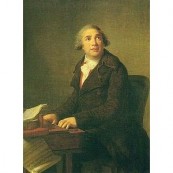
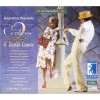
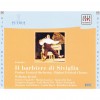
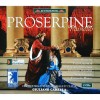
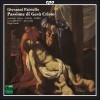

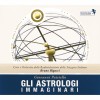
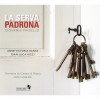
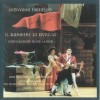
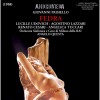
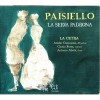
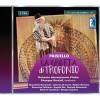
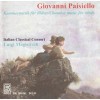



![Janet Baker: ''The Philips & Decca Recordings, 1961 - 1979'' [CD 1 of 5]](http://static.classicalm.com/repository/disk-cover/small/3008-img1371564758859580.jpg)
